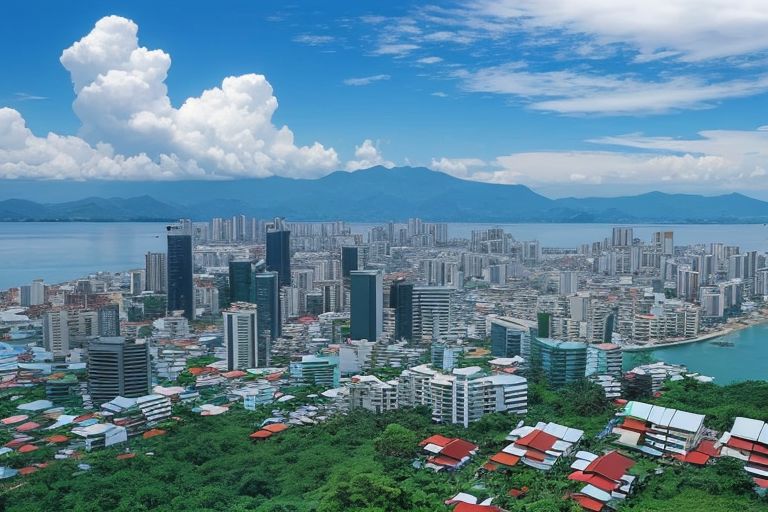
Avoiding Pitfalls: Tips for Buying Property in the Philippines
The Philippines offers stunning scenery, a vibrant culture, and an inviting community—making it an attractive place for property buyers. But while the idea of owning a piece of paradise is exciting, navigating the local real estate system can be tricky if you’re not prepared. This guide will walk you through common pitfalls and how to avoid them, so your dream purchase doesn’t turn into a costly mistake.
Avoid These Common Pitfalls When Buying Property in the Philippines
Buying property here is a big decision. Without proper due diligence, things can go south quickly. Here’s what to look out for—and how to protect yourself.
Title Troubles: Know What You’re Getting Into
A clean title is the foundation of any secure property deal. But in the Philippines, title issues are more common than you might expect.
-
Unpaid Liens or Taxes: Some properties carry hidden debts like unpaid taxes or mortgages. You could be on the hook if you don’t spot them in time.
-
Multiple Heirs: Inherited land may involve several family members. If even one heir hasn’t agreed to sell, the deal can fall apart.
-
Squatter Concerns: If someone has occupied the land long enough, they might have legal rights to stay there. Always check.
How to Stay Safe
-
Work with a trusted lawyer to run a full title search.
-
Consider purchasing title insurance for extra peace of mind.
Beware of Too-Good-To-Be-True Deals
Like anywhere, the Philippine property market isn’t free from scams. Here’s what to watch for:
-
Suspiciously Low Prices: If it seems too good to be true, it probably is.
-
Pressure Tactics: A seller pushing you to “decide now” might be hiding something.
-
Fake Paperwork: Documents can be forged. Always verify with your lawyer before signing anything.
How to Stay Safe
-
Deal only with licensed real estate brokers or registered developers.
-
Never hand over money until there’s a signed, legally reviewed sales agreement.
-
Trust your gut—if something feels off, it probably is.
Why You Should Work with Trusted Professionals
Buying property isn’t something you should do solo—especially in a foreign country. Having the right professionals by your side can save you time, money, and stress.
1. Spotting Hidden Issues Early
An experienced real estate agent knows what to look for. They’ll spot title inconsistencies, construction concerns, or zoning issues before you’re locked in.
2. Expert Insight from People Who Know the Area
Professionals like David Wolter of Intelliconstruct understand the Northern Luzon real estate and construction market in depth. This kind of local knowledge is priceless when assessing a property’s true condition and long-term value.
3. Strong Negotiation Support
Good agents understand the local market and know how to negotiate a fair price. They’ll help you avoid overpaying and push for better terms on your behalf.
4. Legal Guidance to Keep You Protected
Philippine property law can be confusing. A reliable lawyer will make sure contracts are accurate, your rights are protected, and there are no hidden traps in the paperwork.
5. Financing Help You Can Trust
If you’re planning to finance the purchase, a mortgage broker can help you compare options, understand local requirements, and secure the best rates available.
6. Peace of Mind Throughout the Process
From start to finish, working with professionals means less stress. They’ll handle the details, keep you informed, and make sure you avoid costly mistakes—giving you confidence every step of the way.
Final Thoughts: A Smart Investment Starts with the Right Help
Buying property in the Philippines is a major investment, and it should be an exciting, rewarding experience—not a stressful one. By surrounding yourself with knowledgeable professionals, you can avoid common pitfalls and make smart, informed decisions. Don’t go it alone—invest in the right support to make your dream home a reality.
Understanding the Legal Side of Buying Property in the Philippines
Buying property in the Philippines is exciting, but it’s also a serious investment—and the legal process can be confusing, especially if you’re unfamiliar with local laws. Whether you’re a foreign investor or a returning Filipino, understanding the legal landscape is essential to protecting your dream purchase.
What You Need to Know About Philippine Property Law
The Philippines has its own systems and restrictions when it comes to real estate. Here’s what you need to keep in mind:
-
The Torrens System
This is the country’s land registration system. It officially records land ownership and helps prevent fraudulent claims. But it’s still important to understand its limitations and verify that the title is clear. -
Restrictions on Foreign Ownership
Foreigners are generally not allowed to own land directly. However, you can legally own condominium units or enter into long-term lease agreements. Knowing your options is key to making the right investment. -
Taxes and Fees
Buying property comes with added costs such as capital gains tax, transfer tax, documentary stamp tax, and registration fees. Be sure to budget for these and ensure full compliance to avoid legal issues later.
Why You Need a Lawyer
Having a qualified real estate lawyer by your side is one of the smartest decisions you can make. Here’s how they can help:
-
Title Verification
Your lawyer can check the title for hidden issues—like unpaid debts, liens, or ownership disputes—to ensure you’re buying clean. -
Contract Review
They’ll go through your purchase agreement line by line, making sure all terms are accurate and your interests are protected. -
Due Diligence
Lawyers can uncover red flags you might not catch on your own, like zoning issues or unresolved disputes involving the property. -
Price Negotiation
Legal experts can also assist with negotiating fair purchase terms, helping you avoid overpaying. -
Closing Support
From paperwork to deadlines, your lawyer will walk you through every step, ensuring a smooth and secure closing process.
Bottom Line:Legal help isn’t just about avoiding problems—it’s about peace of mind. With a real estate lawyer in your corner, you can move forward with confidence.
Choosing the Right Neighborhood: It’s About More Than the House
When buying property, the location matters just as much as the structure. The neighborhood you choose will shape your daily experience and long-term satisfaction.
Why Location Makes All the Difference
-
Lifestyle Fit
Every area has its own vibe. Some neighborhoods are perfect for families, with parks and schools nearby, while others are better suited for young professionals or retirees. Make sure the area fits your lifestyle. -
Zoning Laws
These govern what can be built or operated near your home. Knowing the zoning rules protects you from surprises like a noisy business opening next door. -
Flood Risks
The Philippines is prone to flooding. Check flood maps and local history so you’re not caught off guard during the rainy season. -
Utilities and Infrastructure
Make sure the property has reliable access to water, electricity, sewage, and internet. These essentials can make or break your living experience.
Tip: Visit the neighborhood at different times of day. What feels peaceful at noon might look very different after dark.Inspections Matter: Don’t Skip This Step
Before finalizing your purchase, inspect the property thoroughly. It’s one of the best ways to protect yourself from unexpected—and expensive—surprises.
Key Property Inspections to Schedule
-
General Home Inspection
A certified inspector will check the home’s structure, roof, plumbing, electrical system, and overall condition. This report helps you understand the true state of the property and spot repairs early. -
Termite Inspection
The Philippines’ climate is ideal for termites. A termite check will reveal infestations or risks so you can address them before they cause serious damage. -
Electrical Inspection
Electrical problems can be dangerous. A detailed inspection ensures the wiring is up to code and won’t pose a safety risk to your family. -
Plumbing Inspection
Leaks and plumbing issues can be costly to fix. Have a professional check the water system, drainage, and fixtures for any hidden problems. -
Soil Testing (When Necessary)
If you’re buying land or planning to build, a soil test is essential. It reveals whether the ground can support your construction plans and alerts you to potential stability issues.
Smart Buyers Inspect First
A few thousand pesos on inspections can save you from spending hundreds of thousands on repairs. If the property needs work, you can use the findings to negotiate a lower price—or decide to walk away altogether.
Final Word: Do It Right the First Time
Buying property in the Philippines is a big step. But with legal guidance, careful research, and the right inspections, you can move forward with confidence. Take your time, ask questions, and surround yourself with professionals who understand the process. When you do, you’re not just buying a house—you’re investing in peace of mind.

















